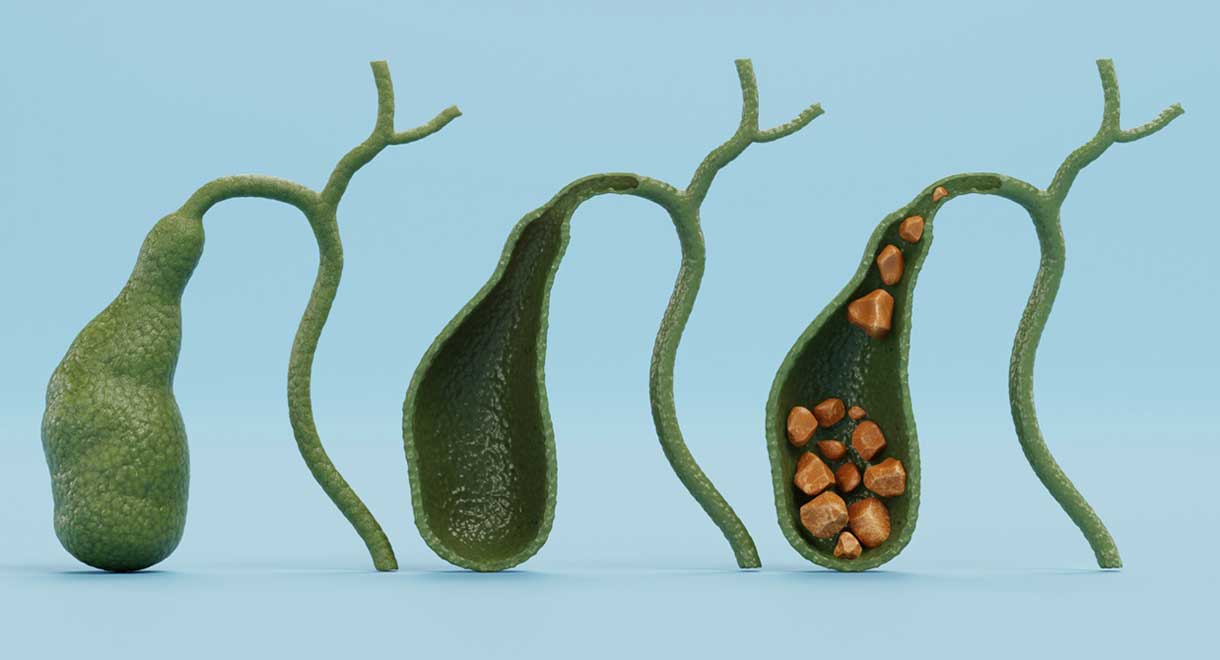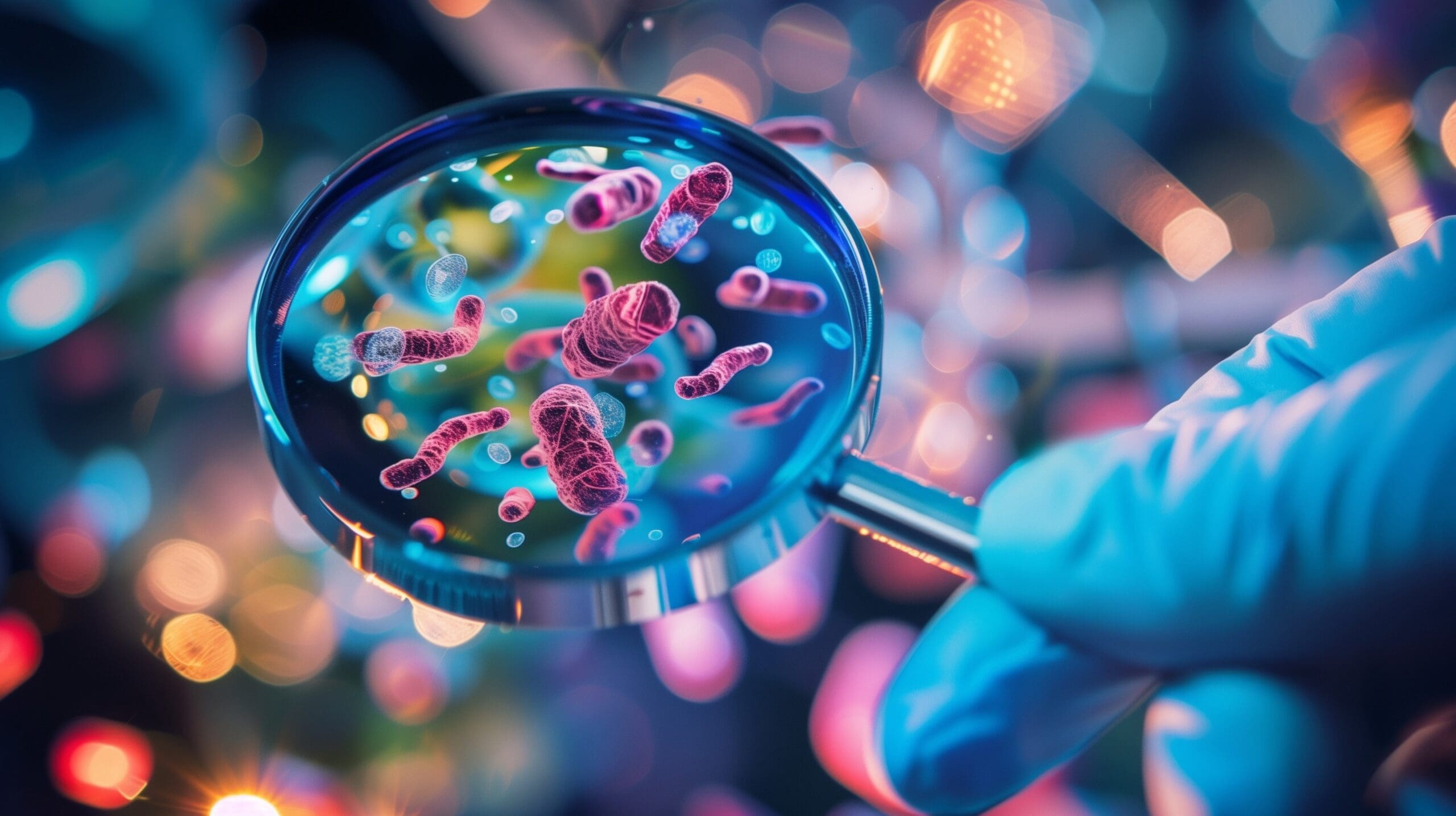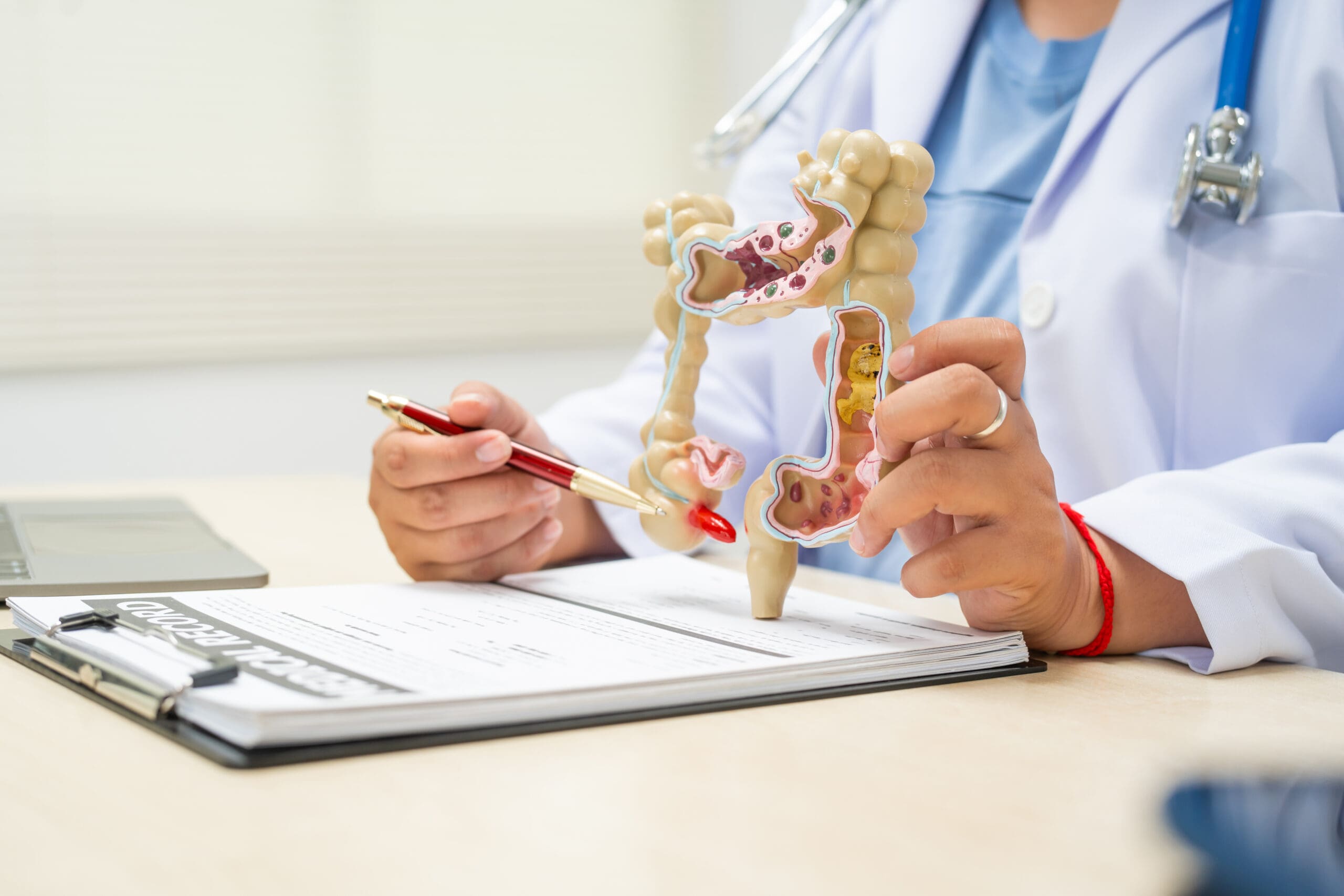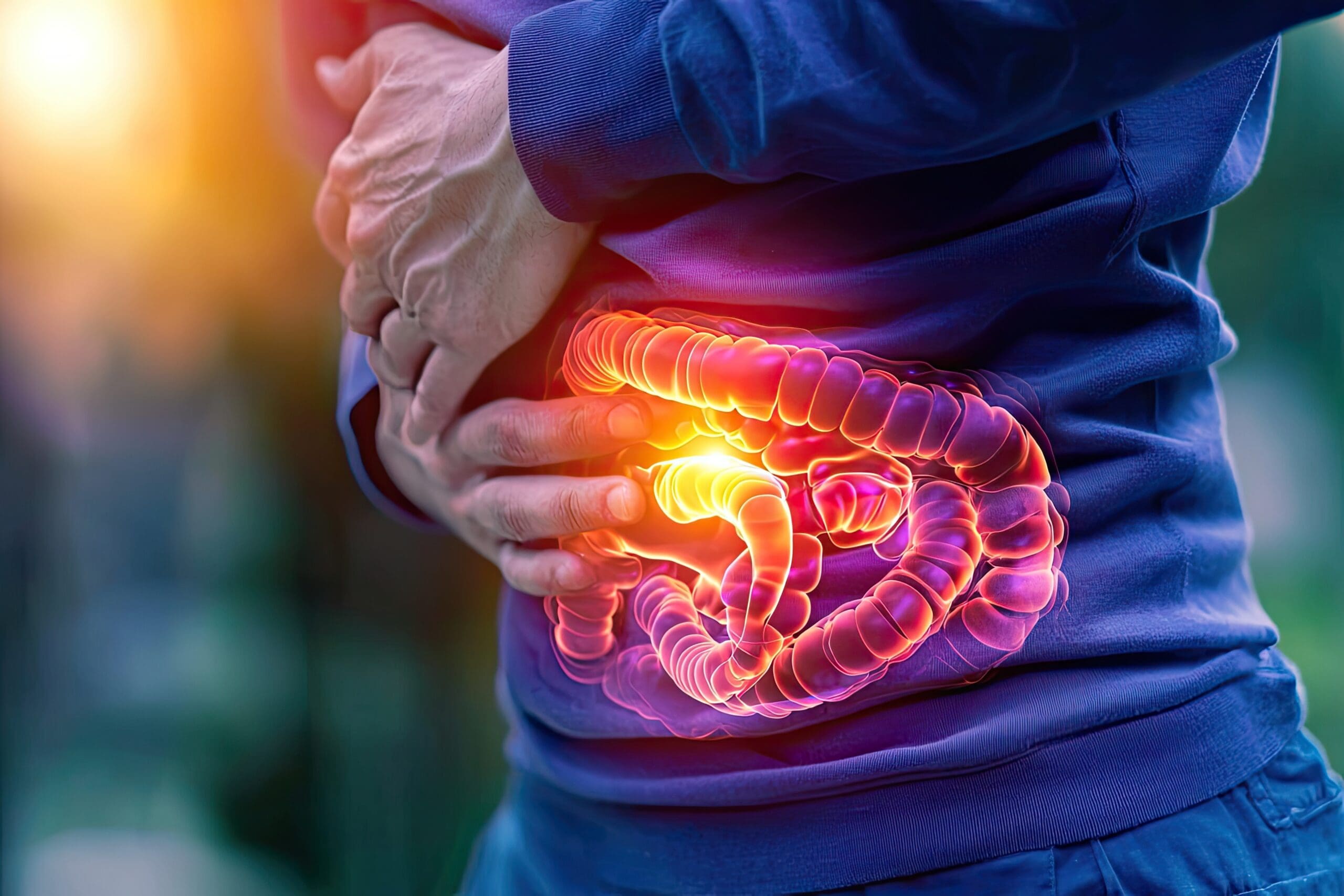What causes gallbladder problems?
By naturopath Margaret Jasinska
If you have a problem with your gallbladder, do you know what caused it? Often people think their health conditions are genetic, but really there is almost always a more accurate explanation.
If you have overindulged in unhealthy food and gained weight, that increases the risk of gallbladder problems, but it’s not the full explanation. Many overweight people have a perfectly healthy gallbladder, and most people who eat junk food don’t end up with gallbladder issues. Gut bug problems and liver problems are usually the reasons people develop gallbladder disease.
In many cases of chronic gallbladder problems there is persistent inflammation and/or bacterial infection in the gallbladder and bile ducts. These causes are not always diagnosed and thus remain untreated. Chronic inflammation and infection are associated with a thick mucus layer called biofilm and unless we eradicate this biofilm, the problem cannot be treated effectively. There are supplements, antimicrobial herbs and prescription antibiotics that can help with this.
Other factors
Here are some other factors that raise the risk of gallbladder disease:
- Insulin resistance.
- Diabetes.
- Obesity.
- Females are more likely to develop gallbladder disease than males and women who have had several children are at highest risk (due to the extremely high levels of hormones in the bloodstream during pregnancy).
- Hypothyroidism (under active thyroid gland). This condition usually causes elevated cholesterol, a reduced metabolic rate and slowed digestion. People with an under active thyroid are also more likely to suffer with sluggish bile flow and delayed emptying of the gallbladder.
- Food intolerance or food sensitivities. This is a very common yet under-recognised cause of gallbladder disease. Food sensitivities impair healthy digestion and can reduce the ability of the gallbladder to contract and empty fully. Stasis of bile within the gallbladder promotes the formation of sludge and the eventual formation of gallstones.
- Low stomach acid (hypochlorhydria). This goes hand in hand with indigestion and food intolerance. Many people spend much of their lives taking antacid medication that reduces stomach acid. Common brands include Nexium, Somac and Zantac.
- Gluten intolerance/coeliac disease. There is a strong association between this condition and gallbladder disease.
- Having a family history of gallbladder disease.
- Rapid weight loss. If you lose weight extremely quickly, where does the fat go? Your hard working liver will break it down because it is the main fat burning organ in your body. Then the fat will be secreted into your gallbladder as a component of bile. Bile can then become super saturated with fat and raise the risk of stones forming. Alternatively stones that were already in your gallbladder can grow bigger.
- Oestrogen in contraceptives or hormone replacement therapy. Oestrogen increases the amount of cholesterol in bile and that makes stones more likely to form. Women naturally have much more estrogen in their bodies than men and this is why they suffer from gallbladder disease more frequently than men.
- Very low fat diets. Every time you eat fat, hormone signals are sent to your gallbladder prompting it to contract and empty its contents into your small intestine. If you don’t eat enough fat, old bile will stay inside your gallbladder too long and that raises the risk of stones. It is important to eat adequate healthy, unprocessed fat in order to keep your bile moving and keep your gallbladder clean.
- People with high cholesterol and high triglycerides in their blood are at increased risk of gallstones. This is because they make the bile thicker.
- Cholesterol lowering drugs raise the risk of gallstones; particularly statins and clofibrate.
- Having a fatty liver or sluggish, overworked liver significantly raises the risk of developing gallstones. In fact they are almost inevitable.
- People with indigestion, bloating, heartburn, reflux, flatulence or burping are more prone to developing gallbladder disease.
- High alcohol intake.
- Binge eating or eating excessively large meals. Eating more food than your digestive organs can handle is a risk factor for developing gallstones and a major risk factor for getting a gallbladder attack and emergency trip to the hospital if you already have gallstones.
- The antibiotic ceftriaxone.
- Diets high in sugar or other carbohydrate rich foods, junk food and deep fried food.
- Constipation.
- Inflammatory bowel disease (Crohn’s disease and ulcerative colitis).
- Infection in the stomach with the bacteria Helicobacter pylori raises the risk of cholecystitis (inflammation of the gallbladder). The presence of this bacteria also seems to be associated with cancer of the gallbladder or biliary tract. Helicobacter pylori is a very common bacterial infection that raises the risk of stomach ulcers and stomach cancer. It is important not to have an overgrowth of this bacteria in your digestive system because it creates chronic inflammation, which can eventually lead to serious disease. The most effective way to eradicate Helicobacter pylori is to improve the health and function of your digestive system. Parasites and pathogenic organisms are attracted to a sick and dysfunctional digestive tract. You need to make your digestive system healthy and inhospitable to harmful bugs. There are also excellent herbal products designed specifically to eradicate harmful microbes from the digestive system.
Chronic gallbladder inflammation and/or infections
These can lead to the following:
- Acutely swollen and infected gallbladder which can be life threatening without surgery
- Gallbladder stones (cholelithiasis)
- Gallbladder polyps
- Gallbladder cancer
- Digestive problems
Some people continue to have symptoms of gallbladder and biliary duct dysfunction even after surgical removal of the gallbladder. This is because the original cause of the condition was not resolved. If you are concerned about your gallbladder, see our book Save Your Gallbladder and what to do if you’ve already lost it.









Leave A Comment